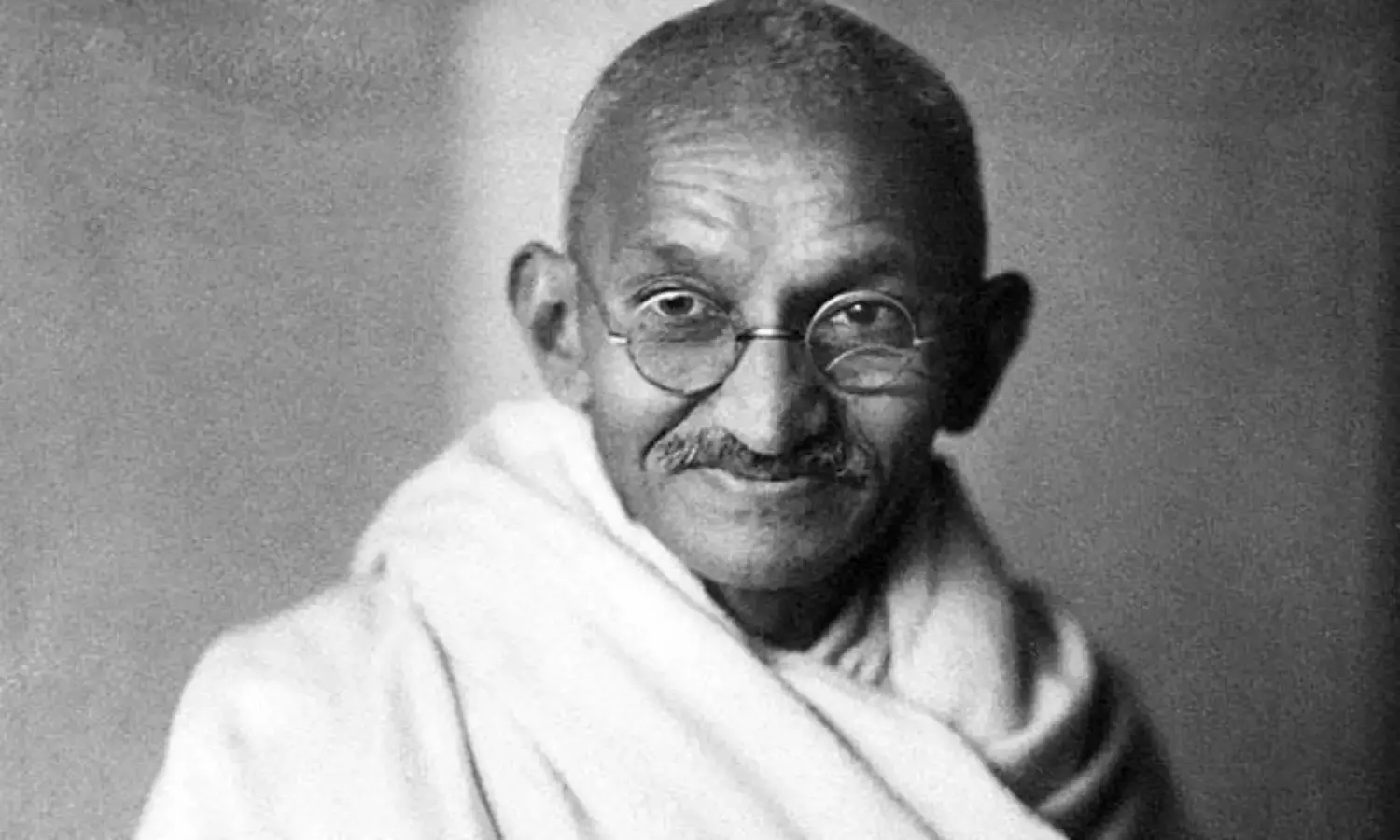The Meaning of Gandhi’s Martyrdom
Gandhi cannot be killed

Mahatma Gandhi expressed his desire to die in a certain manner after Ganesh Shankar Vidyarthi was killed in a communal riot in Kanpur in 1931. Vidyarthi, who was following Gandhiji’s assertion and exhortation that people should lay down their lives for Hindu-Muslim unity and to prevent communal riots, went to Kanpur and was lynched while stopping Hindus and Muslims from rioting.
After Vidyarthi’s tragic death Gandhiji wrote that history would acknowledge him as a truly non-violent person only if he died without any hatred and violence against even his assassins, one of whom might come and violently club him, the other beat him mercilessly and the third one stab him with a knife.
On January 30, 1948 Gandhi met with a violent and bloody death by coming in the way of three bullets of hatred fired by an assassin who was driven a by divisive and communal agenda.
His laying down of life on that day, without hatred against his killer, completely marginalised the forces and ideology which had successfully conspired to target him and violently put an end to his remarkable life.
It was a life marked by the application of the non-violent method to deal with exploitation and subjugation, caused as much by colonial modernity as by the structural inequity and injustice inherent to Indian society.
The forces and ideology which remained defensive and at the periphery of our public life because of Gandhiji’s martyrdom are now in the mainstream, and control the State apparatus.
The ideology and organisation which snuffed out Gandhi’s life are getting deeply entrenched in every aspect of our collective life, and are determining the actions of those who have the mandate to run the country’s affairs.
With impunity that ideology has worked the project of insurrection, targeting the very Constitution, Dalits, religious minorities, and the very idea of citizenship and the idea of a plural and equal India.
The fear and paranoia gripping society is best reflected in the operation of that ideology, which has criminalised dissent and crafted a monolithic, hierarchical structure of society, negating our inherent pluralism and diversity.
Gandhi’s all embracing definition of identity was best reflected in his statement issued after Jinnah refused to meet him unless he came as a representative of Hindus alone. Gandhiji marvellously said that he could not be reduced to a Hindu identity alone, as his Hindu identity was coextensive with his Gujarati identity, which in turn remained coextensive with his Indian, planetary identity and cosmic identity.
Such a composite or multiple identity as Gandhi underlined in his own case is true in the context of our citizens, who celebrate diversity as an integral aspect of their lived experience. It is being nullified by the forces and ideology which killed Gandhi, as they accorded primacy to one identity over the other, thus causing an imbalance in the multiple identity of people.
A narrowing of identities such as this remains a major factor behind violence, as was best outlined by Amartya Sen in his book Identity and Violence. It is tragic that calculated attempts to reduce the identities of people to a single factor has spread violence and bigotry in our society. It is because of the privileging of one identity over another that there is pervasive and widespread violence, which needs to be stemmed by reconciling and balancing all our identities.
The recent posters from Mizoram with the alarming slogan “Welcome China, Bye Bye India”, and the complete boycott of the Republic Day parade there because of the reduction of Indian citizenship to a few religious identities in a legislative proposal of the Union Government clearly negates the Constitution. It also negates Gandhi's vision anchored in his wonderful statement that:
“I do not want India to be wholly Hindu, wholly Islamic or wholly Christian but wholly tolerant with all religions flourishing and coexisting.”
The three bullets of hatred Gandhi stopped on January 30, 1948, saving India from the toxic communal forces which advocate majoritarianism and narrow superiority, are multiplying, because the project of insurrection is being actively implemented; it is resurrecting the ideology of hatred and taking it forward in a vigorous manner.
We need to summon Gandhi in all of us to reverse this trend, and ideologically and electorally defeat communal forces.
After the assassination and martyrdom of Martin Luther King, Jr an American newspaper published a cartoon showing Gandhi sitting in heaven and King entering. Gandhi then observes, “The odd thing about the assassin, Dr King, is that he thinks he has killed you.”
Gandhi cannot be killed. He prophetically said a few days before his assassination that if he was true to his conviction he would continue to speak from his grave. And indeed he is speaking louder than before.
Gandhi, in the words of Albert Einstein, confronted the brutalities of Europe with the dignity of simple human being.
The worth and dignity of ordinary Indians can be an effective counter to the vicious poison being injected into our public life, by the forces and ideology which killed Gandhi.
Gandhi showed that such forces could be defeated by employing non-violence.
It is doable, and we can do it by following Gandhi.
Long live Gandhi.



